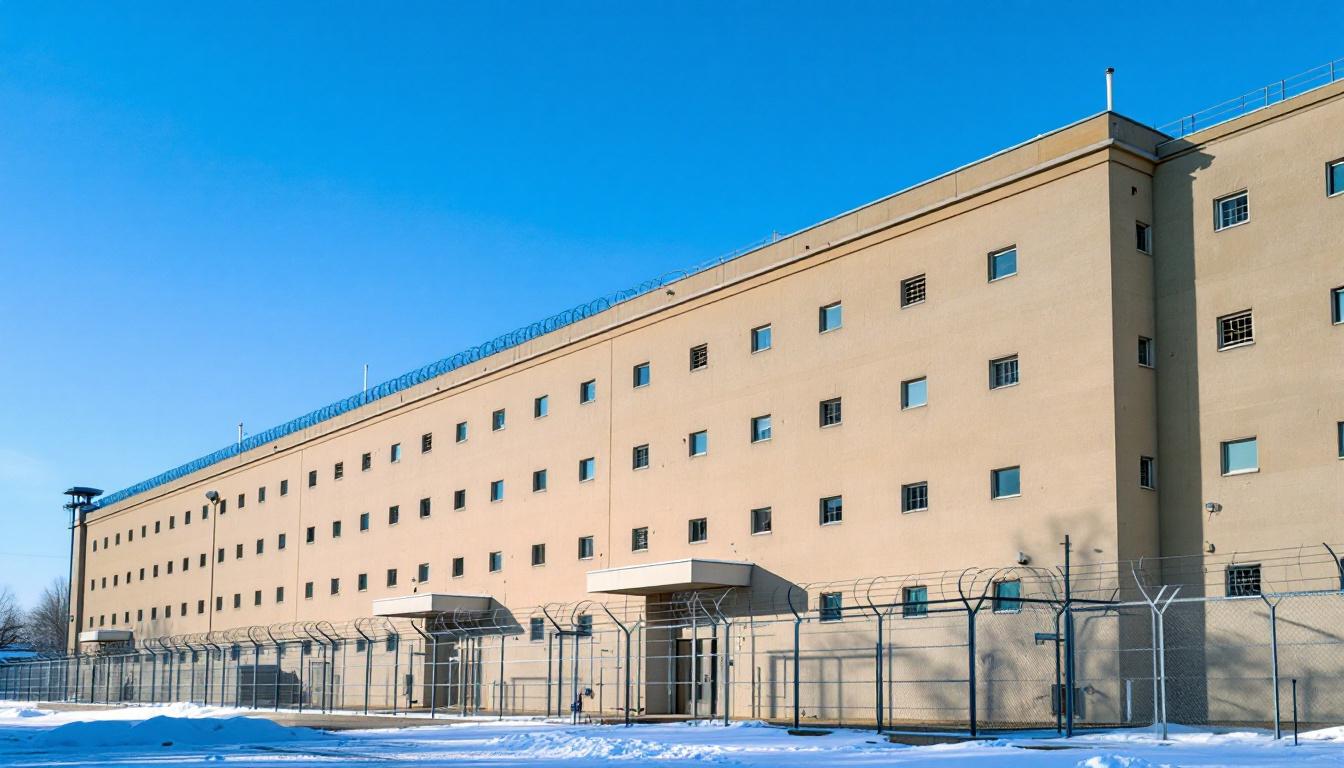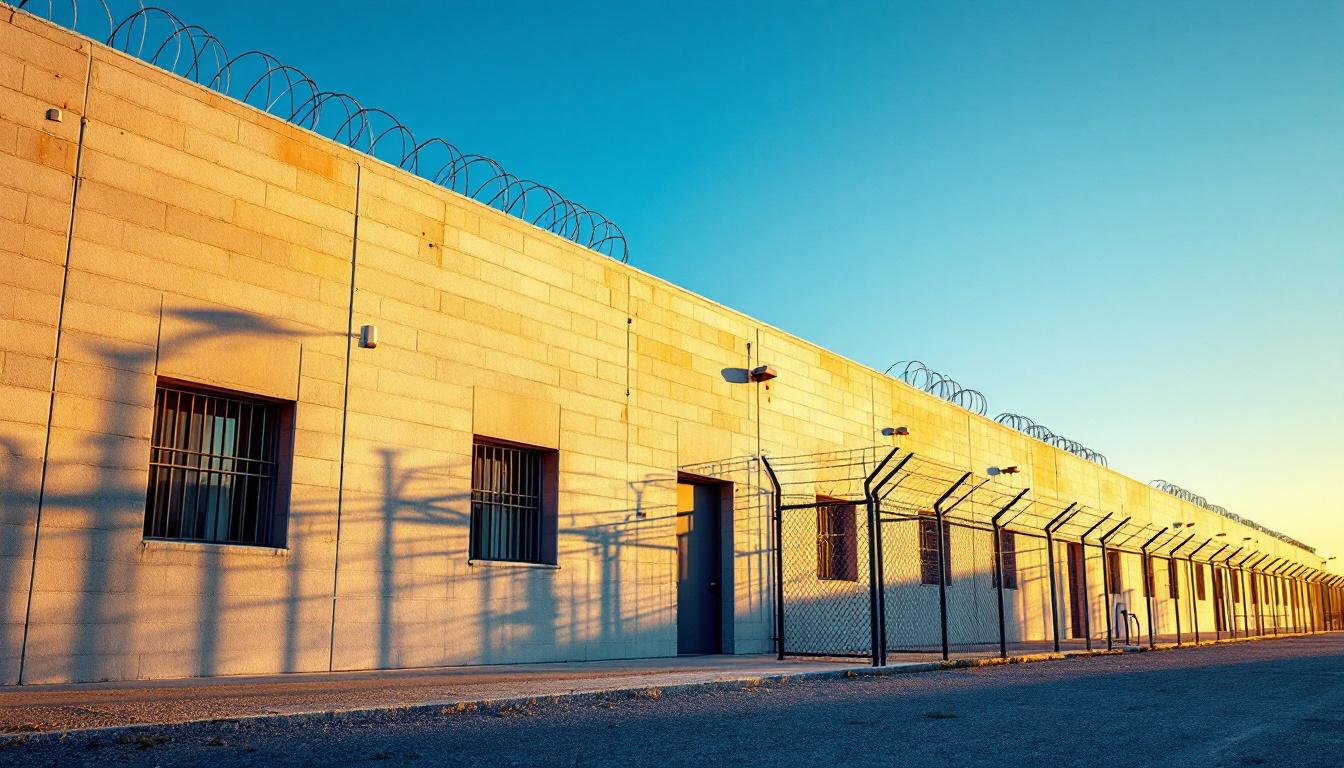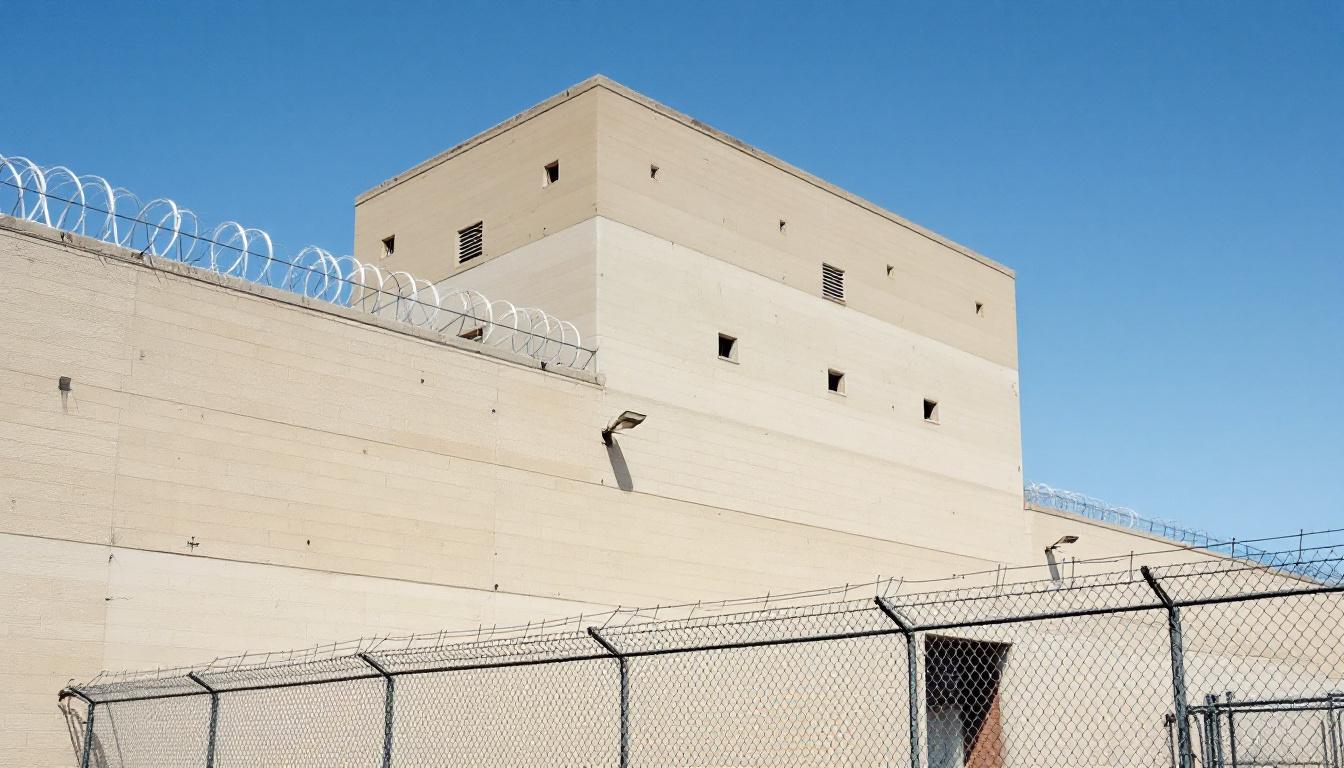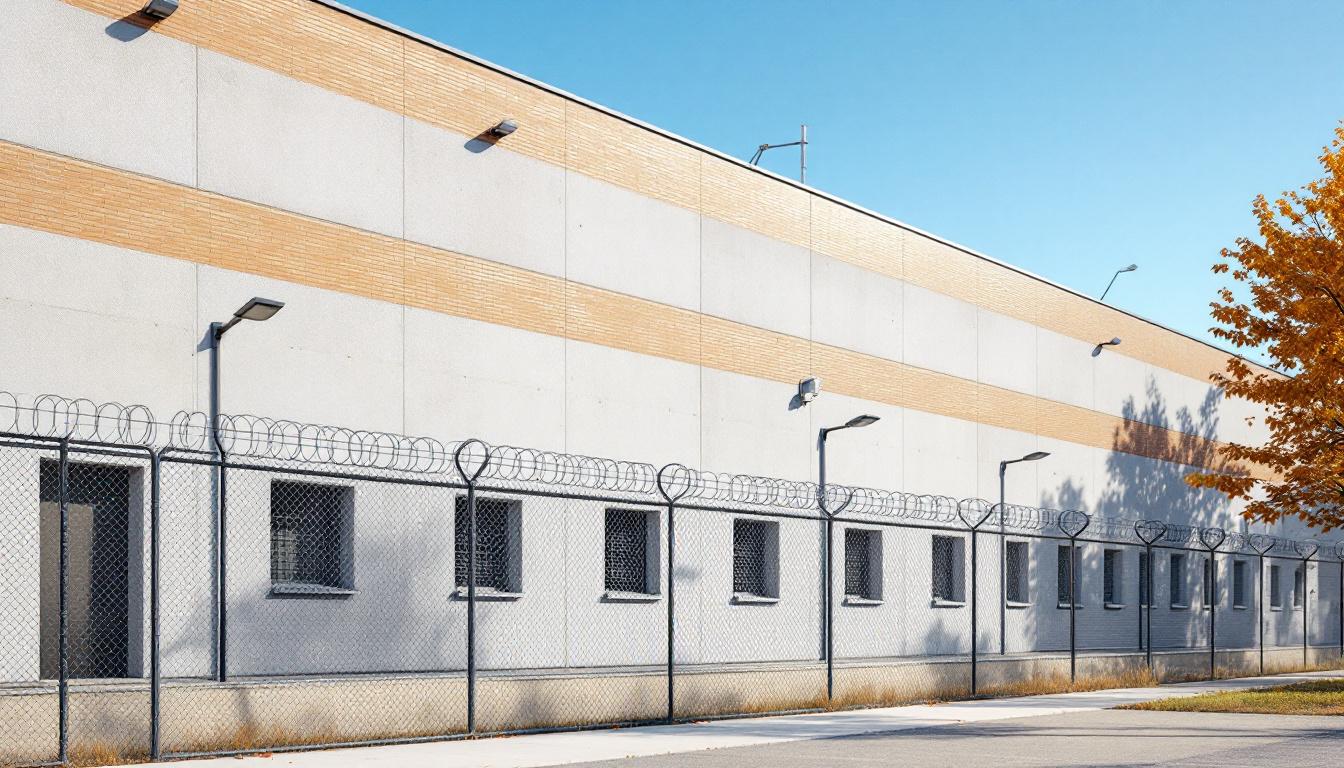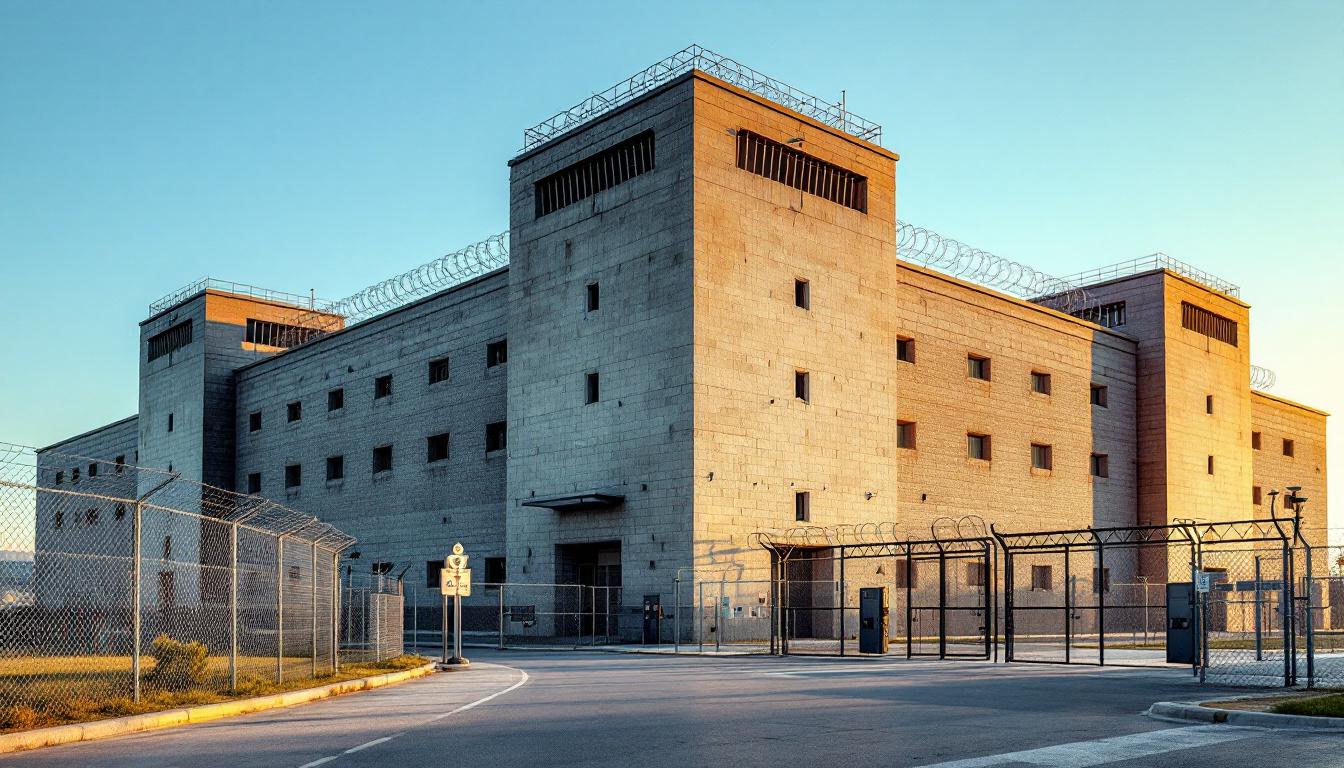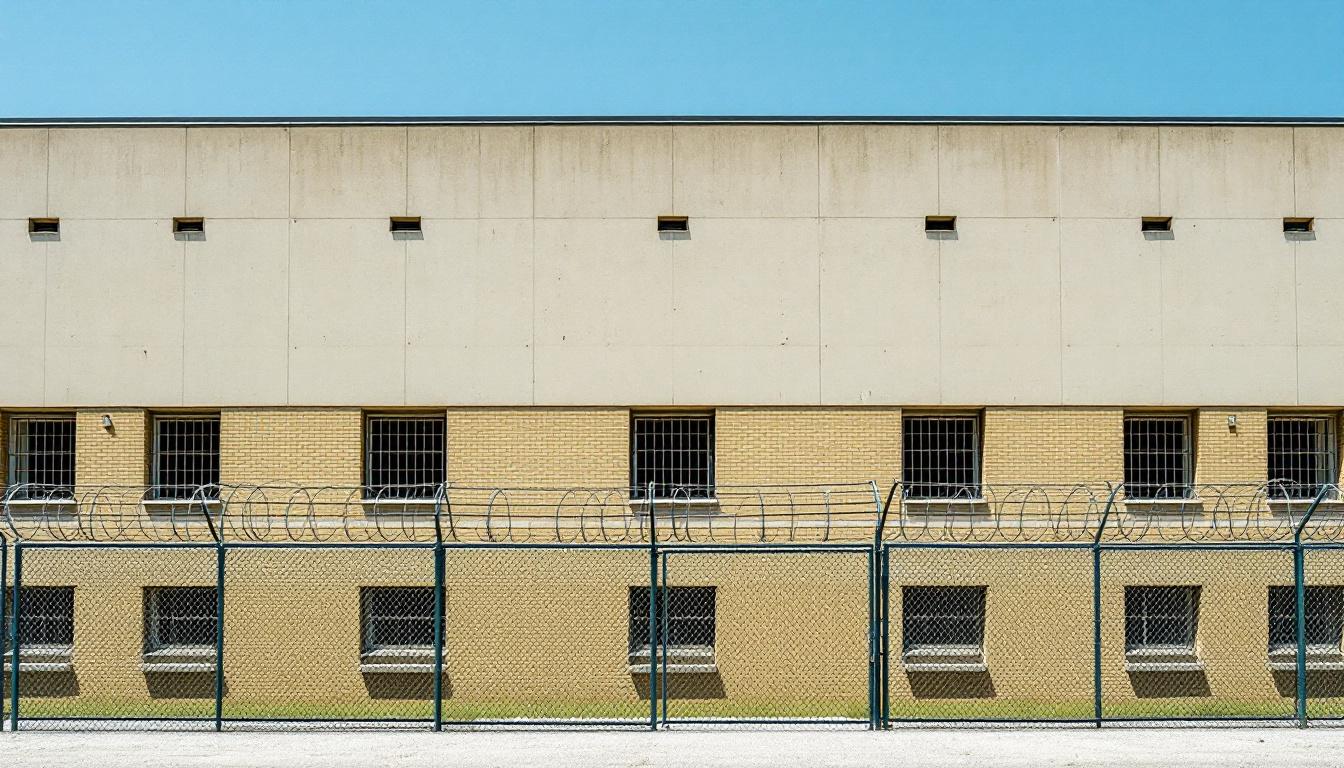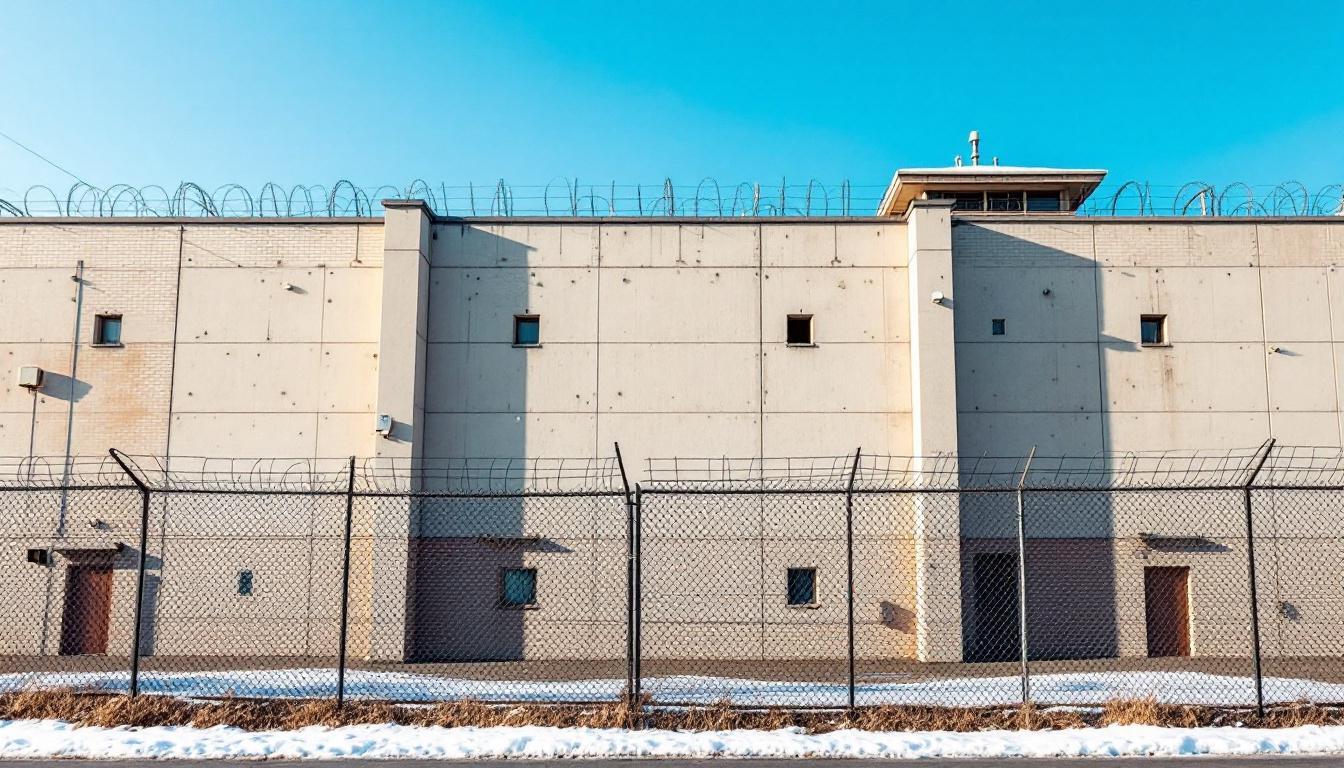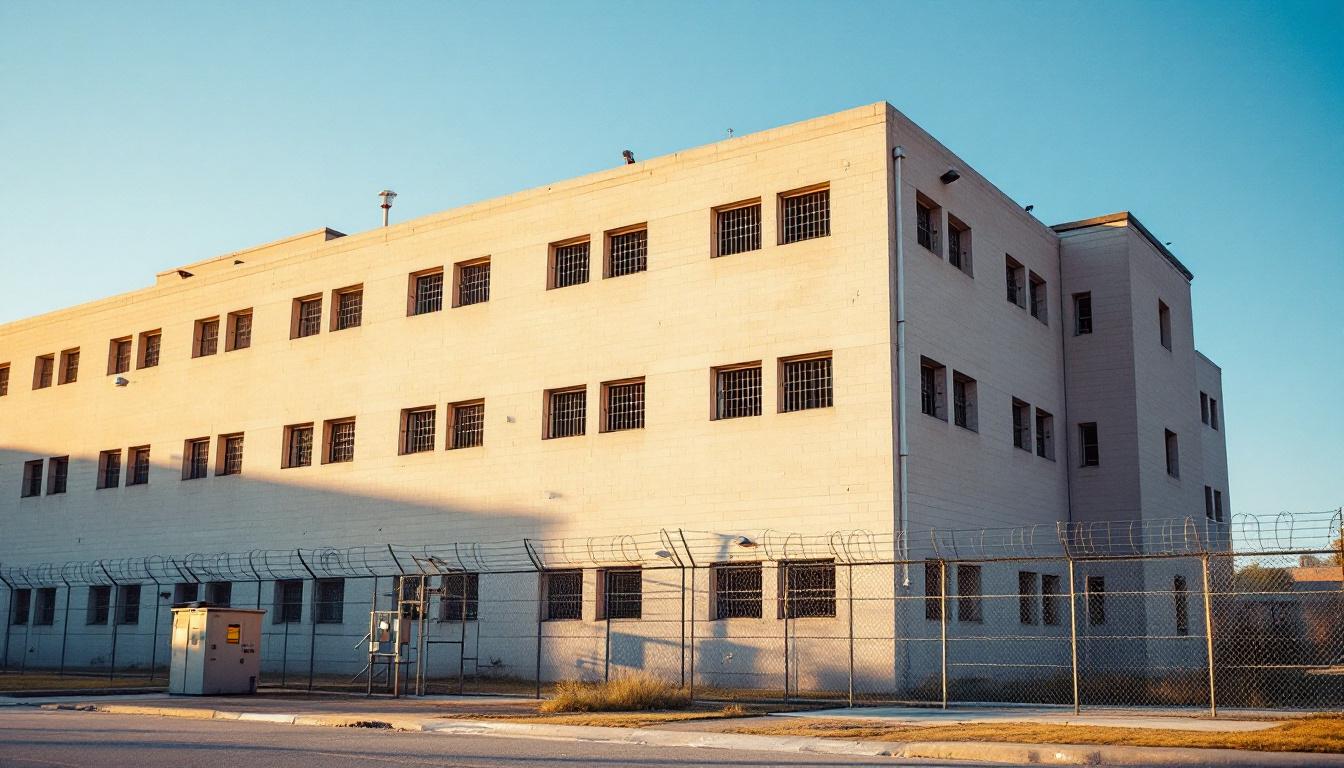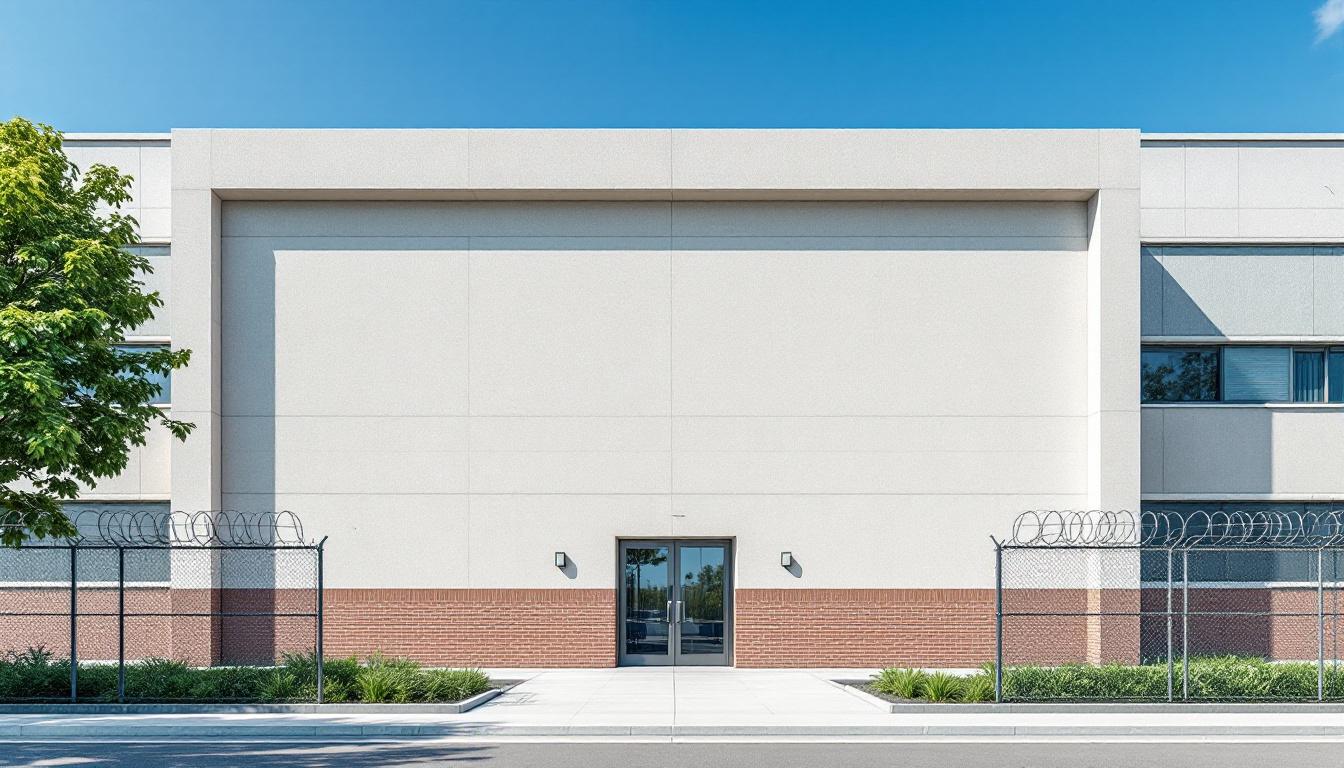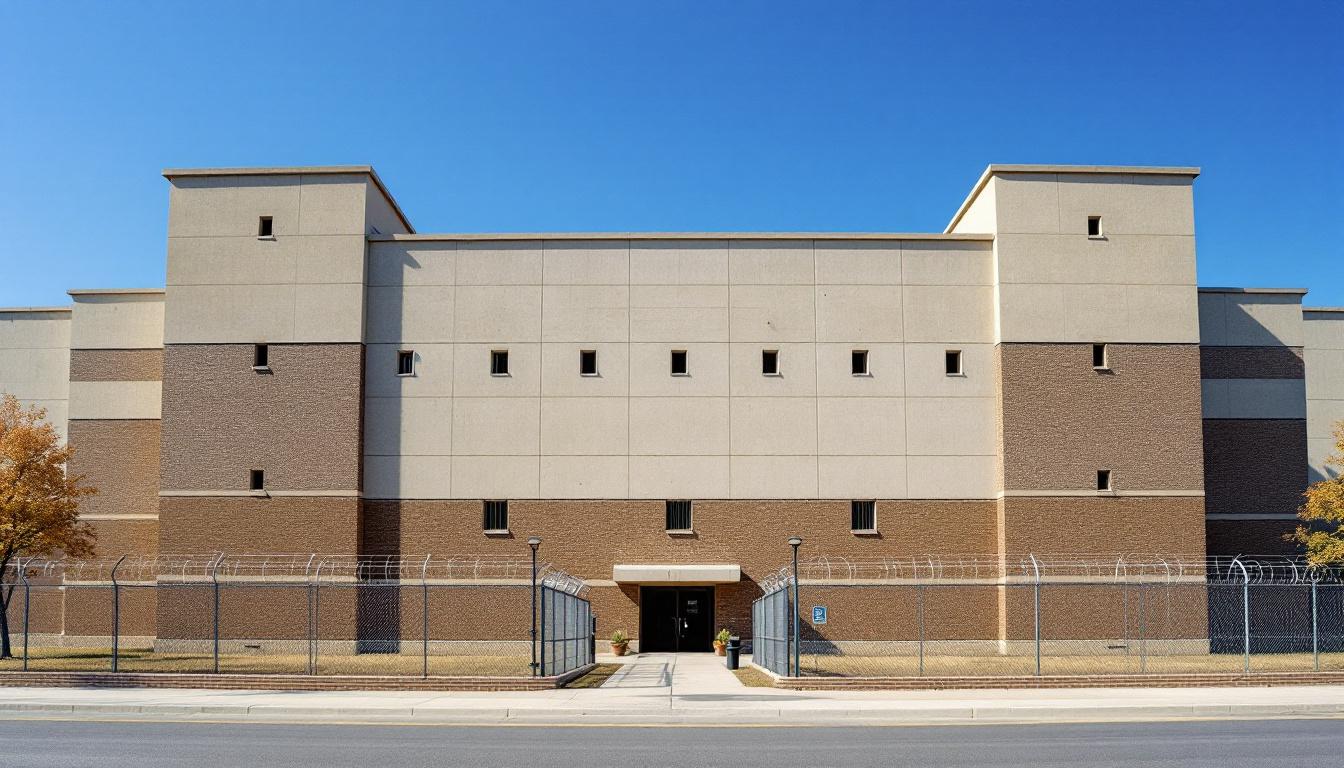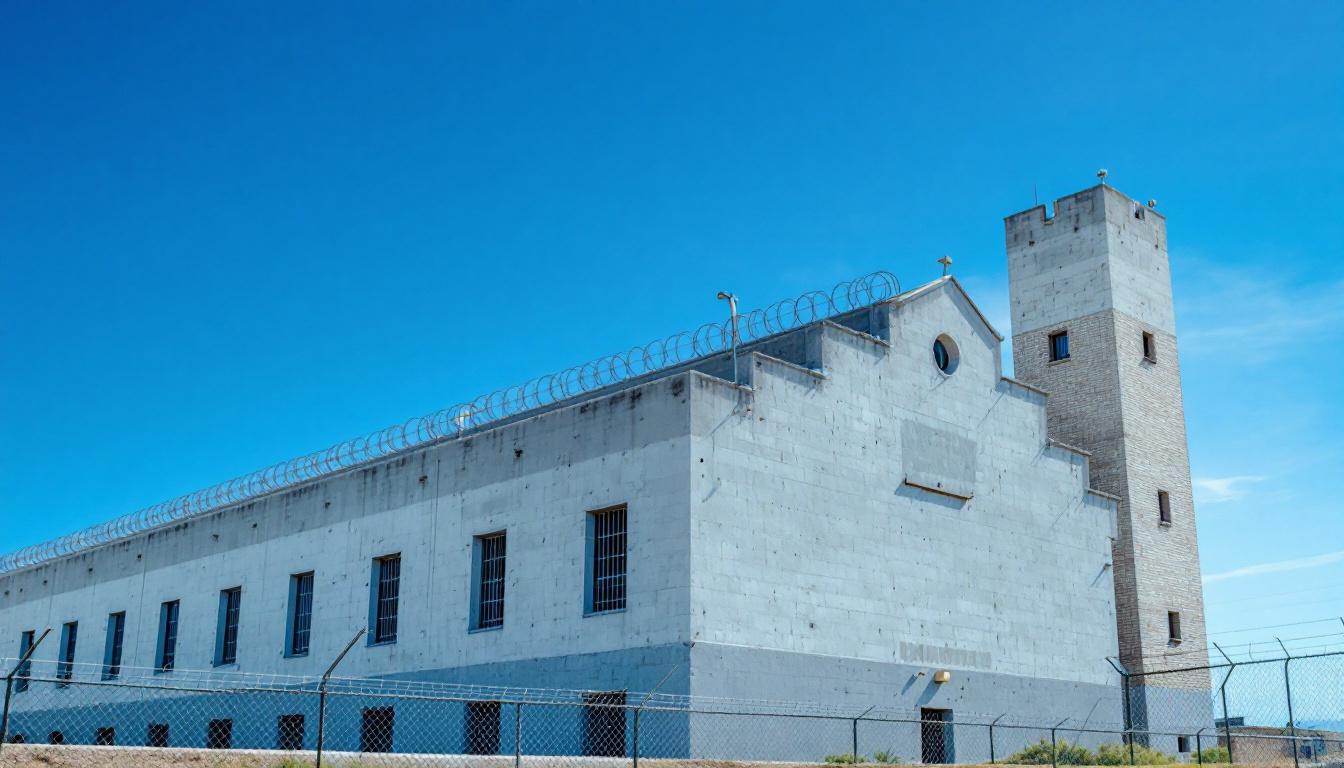
Quick Navigation
How to contact an inmate at Fayette County Sheriff's Office
This comprehensive guide will walk you through how to connect with an inmate at Fayette County Sheriff's Office. Follow the steps below to find an inmate and send letters and photos:
- Search for the inmate using our search tool below
- Create your account or log in to Penmate
- Write your message (up to 6,000 characters)
- Send instantly - inmates receive printed copies daily
Find an Inmate
Search for an inmate to start communicating today
Tip: You can search by first name, last name, or inmate ID number
To contact a person at Fayette County Sheriff's Office start by searching for the person on the official facility website. Perform a search by following these steps:
- Step 1: Enter their first name and last name into the search form and click "Search"
- Step 2: Locate their inmate record
- Step 3: Write down their Inmate ID and any housing information provided
Important! Be sure to enter the person's full name. Nicknames should not be used.
How to Send Messages to Inmates

You can use your phone or computer to send emails, letters, and photos to an inmate. Messages are sent electronically to inmate tablets or kiosks at the facility. If you would like to send a message, start by searching for an inmate at Fayette County Sheriff's Office.
Sending Photos and Postcards

A great way to send love and support to a loved one at Fayette County Sheriff's Office is to send photos and postcards. It only takes a few minutes to send photos from your phone and it makes a huge difference. You can also mail postcards with words of support and inspiration, or design your own postcard for special moments like birthdays and holidays.
Important! Be sure not to send any explicit photos or they may not be approved by the facility. You can also use a photo printing app like Penmate to make sure your photos are printed at the correct size (4x6 or 3x5) and are mailed according to the rules and regulations of Fayette County Sheriff's Office.
Frequently asked questions about Fayette County Sheriff's Office
-
How long does it take to deliver a message?
If you're sending an email message your letter is usually delivered within 24-48 hours. For messages sent via mail you should expect delivery within 3-7 days. All messages will need be approved by Fayette County Sheriff's Office.
-
How much does it cost to send a message to Fayette County Sheriff's Office?
You can send a message free using your phone or mail a message via USPS for the price of a $0.60 stamp and envelope. You can also purchase credits or e-stamps from services starting at $1.99.
-
What services can I use to contact an inmate at Fayette County Sheriff's Office?
Penmate
You can use Penmate to send letters and photos to an inmate from your phone. It's an easy way to stay in touch during your loved one's incarceration. Use the inmate locator to find an inmate's location and contact information, then you can send messages within a few minutes.
Securus messaging
Securus may be another option for communicating with an inmate at Fayette County Sheriff's Office. You can create a friends and family account and purchase credits to send messages. All messages will be reviewed and must be approved by the facility.
JPay
Some county jails and state prisons may support sending messages with JPay. You must register an account with the system, find your loved one, and purchase stamps to send messages. For some locations you can also attach photos.
Smart Jail Mail
You may also check if Smart Jail Mail is available at Fayette County Sheriff's Office. Smart Jail Mail is operated by Smart Communications and has contracted with some state and county jails. After purchasing credits, your messages and photos are sent to the facility, printed out, and then handed out to your loved one.
-
What is the mailing address of Fayette County Sheriff's Office?
Mailing address:
Fayette County Sheriff's Office
145 Johnson Ave
Fayetteville, GA 30214
Phone: (770) 716-4720Business hours:
- Monday: 8:00 AM – 4:30 PM
- Tuesday: 8:00 AM – 4:30 PM
- Wednesday: 8:00 AM – 4:30 PM
- Thursday: 8:00 AM – 4:30 PM
- Friday: 8:00 AM – 4:30 PM
- Saturday: Closed
- Sunday: Closed
-
What are the visiting hours at Fayette County Sheriff's Office?
Visiting hours at Fayette County Sheriff's Office vary by housing unit and security level. Generally, visits are scheduled on weekends and holidays, with some facilities offering weekday visits. Contact the facility directly at (770) 716-4720 or check their website for the current visiting schedule. Visits typically last 30-60 minutes and must be scheduled in advance.
-
What items are prohibited when sending mail to Fayette County Sheriff's Office?
Prohibited items typically include: cash, personal checks, stamps, stickers, glitter, glue, tape, staples, paperclips, polaroid photos, musical or blank greeting cards, hardcover books, magazines with staples, and any items containing metal or electronics. Only send letters on plain white paper with blue or black ink. Photos must be printed on regular photo paper (no Polaroids). Always check with Fayette County Sheriff's Office for their specific mail policies.
-
How do I send money to an inmate at Fayette County Sheriff's Office?
You can send money to an inmate at Fayette County Sheriff's Office through several methods: 1) Online using JPay, Access Corrections, or the facility's approved vendor, 2) Money orders mailed directly to the facility with the inmate's name and ID number, 3) Kiosks located in the facility lobby, or 4) Over the phone using a credit or debit card. Fees vary by method, typically ranging from $2.95 to $11.95 per transaction.
-
Can I schedule a video visit with an inmate at Fayette County Sheriff's Office?
Many facilities now offer video visitation as an alternative to in-person visits. At Fayette County Sheriff's Office, video visits may be available through services like Penmate, Securus Video Connect, GTL, or ICSolutions. Video visits typically cost $10-20 for 20-30 minutes and must be scheduled in advance. You'll need a computer or smartphone with a camera and reliable internet connection. Contact the facility for their specific video visitation policies and approved vendors.
-
What identification do I need to visit an inmate at Fayette County Sheriff's Office?
All visitors must present valid government-issued photo identification such as a driver's license, state ID, passport, or military ID. Minors must be accompanied by a parent or legal guardian who can provide the minor's birth certificate. Some facilities require visitors to be on the inmate's approved visitation list, which may require a background check. Contact Fayette County Sheriff's Office for specific ID requirements and visitor approval procedures.
-
How can I find out an inmate's release date?
To find an inmate's release date at Fayette County Sheriff's Office, you can: 1) Use the online inmate search tool if available, 2) Call the facility's records department, 3) Contact the inmate's case manager or counselor, or 4) Have the inmate provide this information during a call or visit. For privacy reasons, some facilities only release this information to immediate family members.
Facility Overview
Contact Information
Fayette County Sheriff's Office145 Johnson Ave
Fayetteville, GA 30214
Phone: (770) 716-4720
Official Website
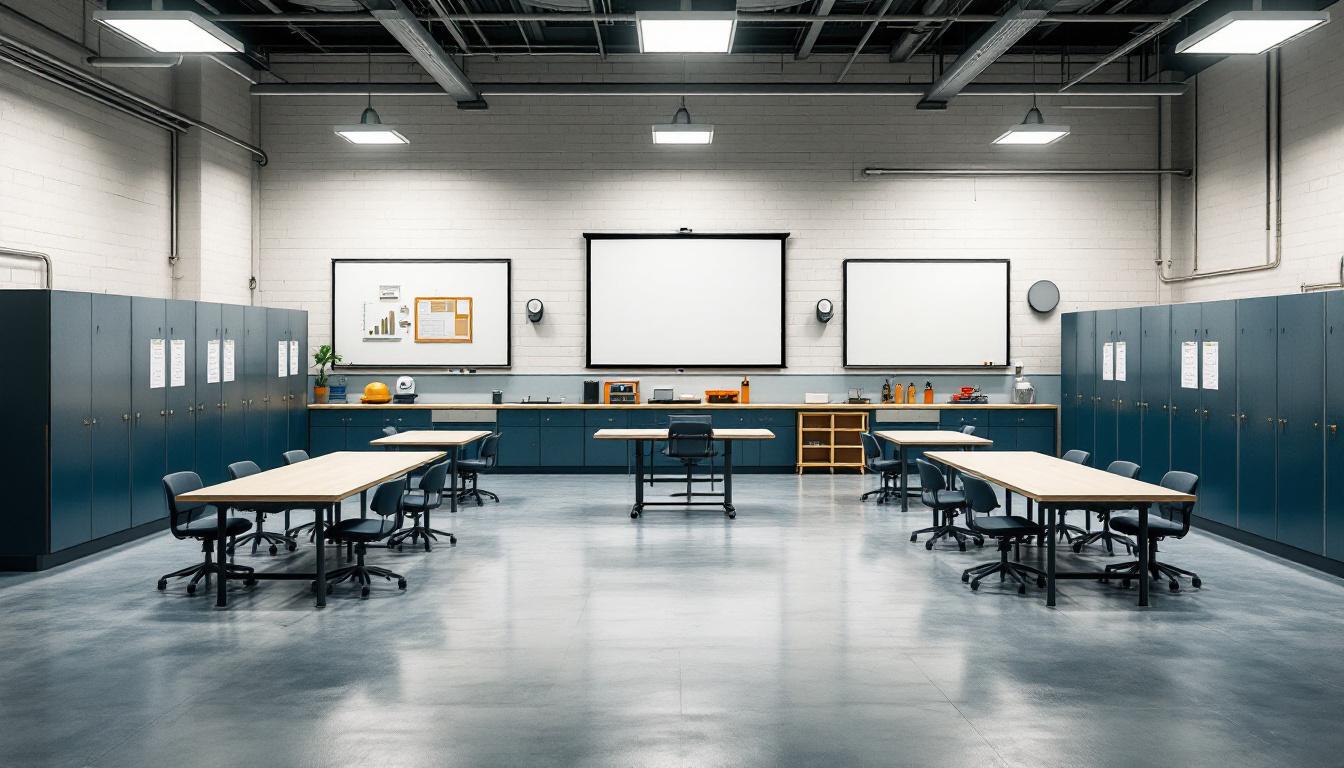
About Fayette County Sheriff's Office
Within Atlanta's broader metropolitan correctional network, the Fayette Co Jail serves as a vital component of Georgia's county-level detention system, prioritizing secure custody while maintaining essential services for those incarcerated. This GA correctional facility operates under the fundamental mission of public safety, ensuring individuals awaiting trial or serving shorter sentences receive appropriate supervision and support during their time in custody. Located within Fayette County's jurisdiction near Atlanta, the facility typically coordinates with regional law enforcement agencies and courts to process individuals through various stages of the judicial process.
The county jail generally maintains a structured environment designed to balance security requirements with basic human needs and potential rehabilitation opportunities. Those incarcerated services may include medical care, mental health support, and educational programming, though specific offerings can vary based on available resources and operational needs. The facility often works within Georgia's broader correctional framework, potentially collaborating with other county jails and state facilities to manage population levels and ensure appropriate placement of individuals based on their legal status and security classification.
As part of the regional corrections network serving the Atlanta metropolitan area, Fayette Co Jail typically emphasizes maintaining order while preparing individuals for eventual reintegration into the community. The facility may offer various programs aimed at addressing underlying issues that contribute to criminal behavior, such as substance abuse counseling or job readiness training, depending on funding and staffing availability. Through its role in the county's justice system, the jail serves not only as a secure detention center but also as a potential stepping stone toward positive behavioral change for those in its custody.
Programs & Services
Recognizing that periods of incarceration can serve as catalysts for meaningful personal transformation, the facility emphasizes creating structured pathways that enable individuals to develop essential life skills and rebuild their foundations. Through a comprehensive framework of educational, vocational, and therapeutic offerings, those incarcerated may access resources designed to address both immediate needs and long-term reintegration goals. This multifaceted approach typically centers on fostering accountability, personal responsibility, and the development of practical competencies that support successful community reentry.
Educational advancement opportunities often include basic literacy programs, GED preparation courses, and continuing education initiatives that allow participants to strengthen their academic foundations. Additionally, vocational training components may furnish hands-on instruction in practical trades such as electrical work, providing those incarcerated with marketable skills and industry-relevant experience. These structured learning environments typically emphasize both technical proficiency and workplace readiness, preparing individuals for employment opportunities upon release while instilling discipline and focus during their period of confinement.
Support services frequently encompass faith-based programming that addresses spiritual development and moral reflection, alongside comprehensive reentry preparation that covers essential life management skills. Additionally, therapeutic offerings may include specialized training in time management techniques and opportunities for meaningful work through grounds maintenance responsibilities, which provide both practical experience and a sense of contribution to the facility community. These varied support mechanisms typically work in conjunction to create a structured environment where personal growth, skill development, and preparation for successful community reintegration remain central priorities throughout an individual's period of incarceration.
Daily Life & Visitation
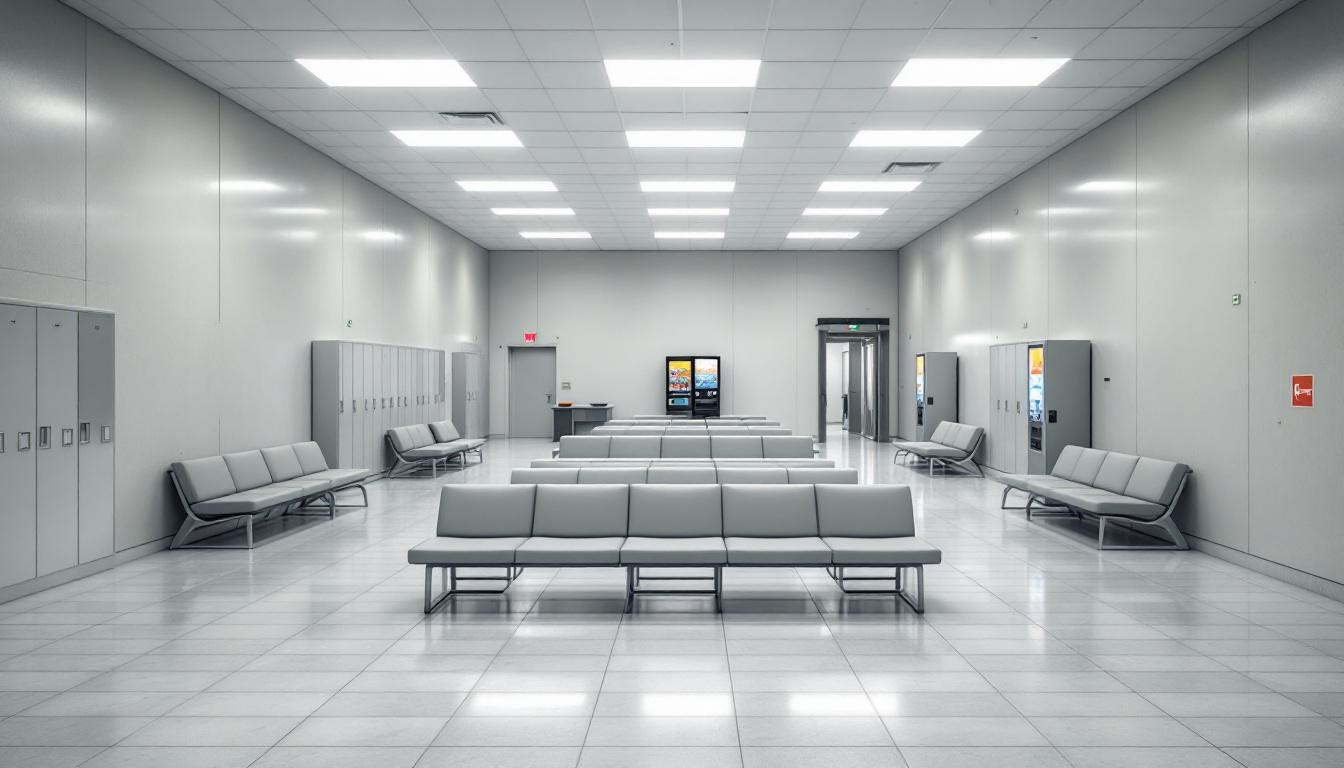
Maintaining connections with family members and loved ones forms a cornerstone of the daily experience for those incarcerated, as communication opportunities and structured social interactions help preserve vital relationships during their time at the facility. At present, residents actively participate in a routine that balances security requirements with opportunities for personal development and community engagement, where scheduled activities furnish structure throughout each day. The facility typically operates on a consistent schedule that includes designated times for meals, recreation, programming, and rest periods, allowing those incarcerated to establish predictable patterns while working toward their goals.
Living accommodations generally consist of shared housing units where residents may develop supportive relationships with their peers, creating informal networks that often help individuals navigate their daily challenges. Additionally, the facility typically provides communal areas where those incarcerated can engage in conversations, participate in recreational activities, and maintain social connections that contribute to their overall well-being. Meals are usually served in designated dining areas, furnishing opportunities for social interaction and community building among residents, while also ensuring proper nutrition and structured meal times that anchor the daily routine.
The facility often offers various work assignments and programming opportunities that allow those incarculated to develop skills while contributing to the facility's operations, with positions that may include kitchen duties, maintenance tasks, and administrative support roles. While security protocols govern many aspects of daily life, visitation policies typically allow family members and approved visitors to maintain regular contact through scheduled visits, phone calls, and correspondence. Additionally, recreational activities and exercise opportunities generally provide outlets for physical activity and stress relief, helping residents maintain their mental and physical health while building positive relationships with their peers during their time at the facility.
Ready to Connect?
Start communicating with your loved one today
Search for an Inmate
